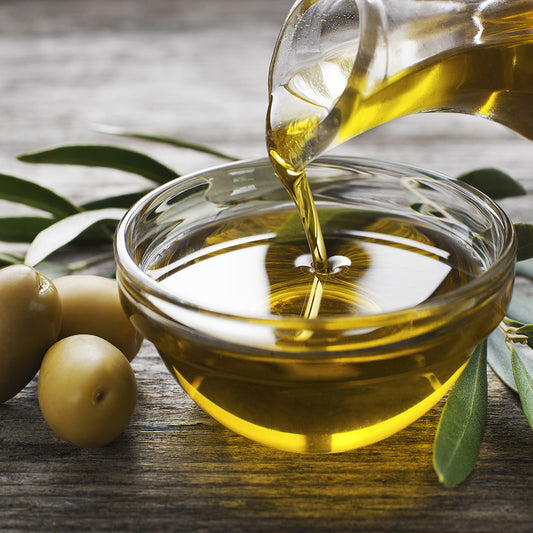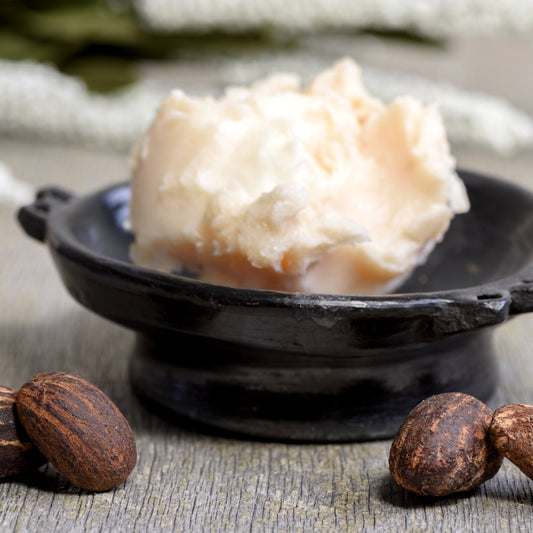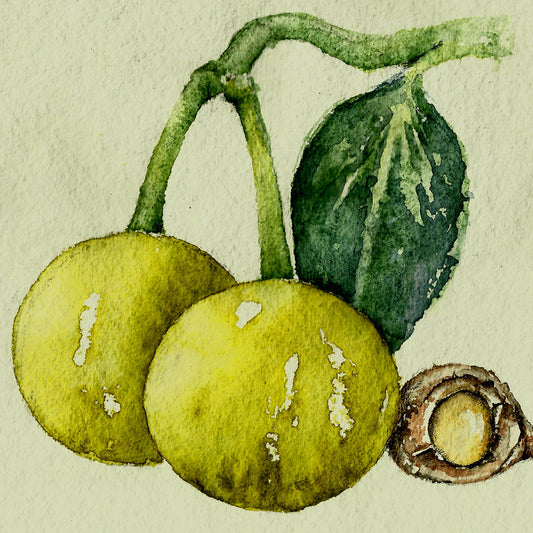Castor Bean Oil: Is It Poisonous?
What Is Castor Oil?
 Castor oil, also known as Palma Christi oil, is a vegetable oil cold-pressed from the seeds of the Ricinus communis, castor bean plant. Castor oil has been used as medicine for centuries.
Castor oil, also known as Palma Christi oil, is a vegetable oil cold-pressed from the seeds of the Ricinus communis, castor bean plant. Castor oil has been used as medicine for centuries.
This thick, viscious oil is made up of 85 - 90% ricinoleic acid. Ricinoleic acid is a fatty acid that is unique to castor oil. There is truly no other oil quite like it.
Castor bean oil adds mildness and richness to soap and shampoo and provides a conditioning, fluffy lather with thick, large bubbles. It also creates the highest gloss of all natural oils when used in lip balm.
Often used in facial cleansing oils, castor oil is able to remove make-up and dirt with simple massaging and removal with a warm cloth. Anti-inflammatory, antimicrobial, properties in the oil help to clear the skin of bacteria that can cause blemishes.
Castor oil is a popular healing agent for many skin problems and a natural remedy for dry skin. Rich in fatty acids, it is a soothing, lubricating oil that is readily absorbed by the skin. It moisturizes by acting as a humectant to attract and lock moisture to the skin. Its high concentration of fatty acids hydrates the skin to help remove dry patches.
Castor oil is often used in lip balm formulations. It adds a lovely gloss and shine to lips plus its thick rich consistency is softening, healing, super moisturizing, and deeply hydrating which helps soothe dry, chapped, and flaking lips. It also offers a protective barrier to help prevent dryness.
In hair care, it is commonly used in hair conditioners and in hot oil treatments for brittle, damaged hair, or hair loss. Castor oil coats the hair shaft and smooths the cuticle layer, sealing in moisture and leaving the hair feeling soft and silky.
Is Castor Oil Poisonous?
 We have received e-mails from concerned customers who have read that castor bean oil is poisonous.
We have received e-mails from concerned customers who have read that castor bean oil is poisonous.
Castor Bean oil, also known as Palma Christi Oil, is not poisonous.
There is a toxic protein called ricin, that is concentrated under the shell of the castor-oil beans.
Since ricin is a water-soluble protein it is not extracted into the castor oil and therefore ricin is NOT found in the oil.
Castor oil is produced by cold pressing ripe seeds from the castor plant. Unlike the seeds, castor oil does not contain the poison ricin.
We Eat Many "Poisonous" Plants
The word "poisonous" is very scary, and rightly so. But we come into contact with and eat many items that have a poisonous component before they are processed properly!
For example . . .
Spices and herbs such as thyme, oregano, turmeric, and cinnamon get their flavors from compounds that are actually toxic in concentrated doses, but we usually eat these in small doses.
Raw almonds contain prussic acid, which is the precursor to cyanide. The amount of cyanide found in the almonds you buy at your local grocery store, called sweet almonds (Prunus dulcis dulcis) is not enough to cause cyanide poisoning under normal circumstances.
But although sweet almonds may be safe to eat, bitter almonds (Prunus dulcis amara) may not be. Bitter almonds, popular in many countries, contain 50 times more cyanide per kilogram than sweet almonds, and eating 50 bitter almonds can be deadly. Before consumption, bitter almonds are often processed to remove the poison and some countries make the sale of bitter almonds illegal.
 Ever wondered why cashews are never sold with a shell? The shell of the cashew “nut” (which is actually a seed) contains urushiol, the same chemical found in poison ivy, which is toxic when eaten raw. The so-called raw cashews sold in natural food stores are not really raw.
Ever wondered why cashews are never sold with a shell? The shell of the cashew “nut” (which is actually a seed) contains urushiol, the same chemical found in poison ivy, which is toxic when eaten raw. The so-called raw cashews sold in natural food stores are not really raw.
The phrase “raw cashew” is misleading. Cashews sold as raw have been roasted once to remove both the cashew shell and the shell's harmful oils. Roasted cashews are roasted a second time to alter or enhance the flavor.
Cassava flour is a popular gluten-free alternative, but the leaves and roots are rich in cyanide. These veggies must be peeled and cooked before consumption.
Apricots, cherries, plums, apricots, peaches, and apples contain highly poisonous compounds in their leaves and seed (pits). When the seeds are crushed, chewed, or even slightly injured, they produce prussic acid (hydrogen cyanide).
Tomatoes are members of the deadly nightshade family. The leaves and stems of the tomato plant contain a chemical called “Glycoalkaloid” which is known for causing upset stomachs, severe cramping, and anxiety.
Potatoes, like tomatoes, contain poison in the stems and leaves - and even in the potato itself if left to turn green. The green color is due to a high concentration of the glycoalkaloid poison called solanine. There have actually been a few cases of potato poisoning.
Raw kidney beans can cause severe nausea, vomiting, and diarrhea. The leaves of Rhubarb contain oxalic acid which may cause problems for some. The leaves, stems, and roots of the elderberry are highly poisonous and will cause severe stomach problems and the list goes on and on.
It is very important for us as consumers to have information so we can make informed choices about all of the things we eat and use.
The problem is that sometimes information going around the internet provides just enough information to scare us, but very little information to really inform or teach us.
Castor Bean Oil Is Not Poisonous & It Is a Great Skin Care Oil





